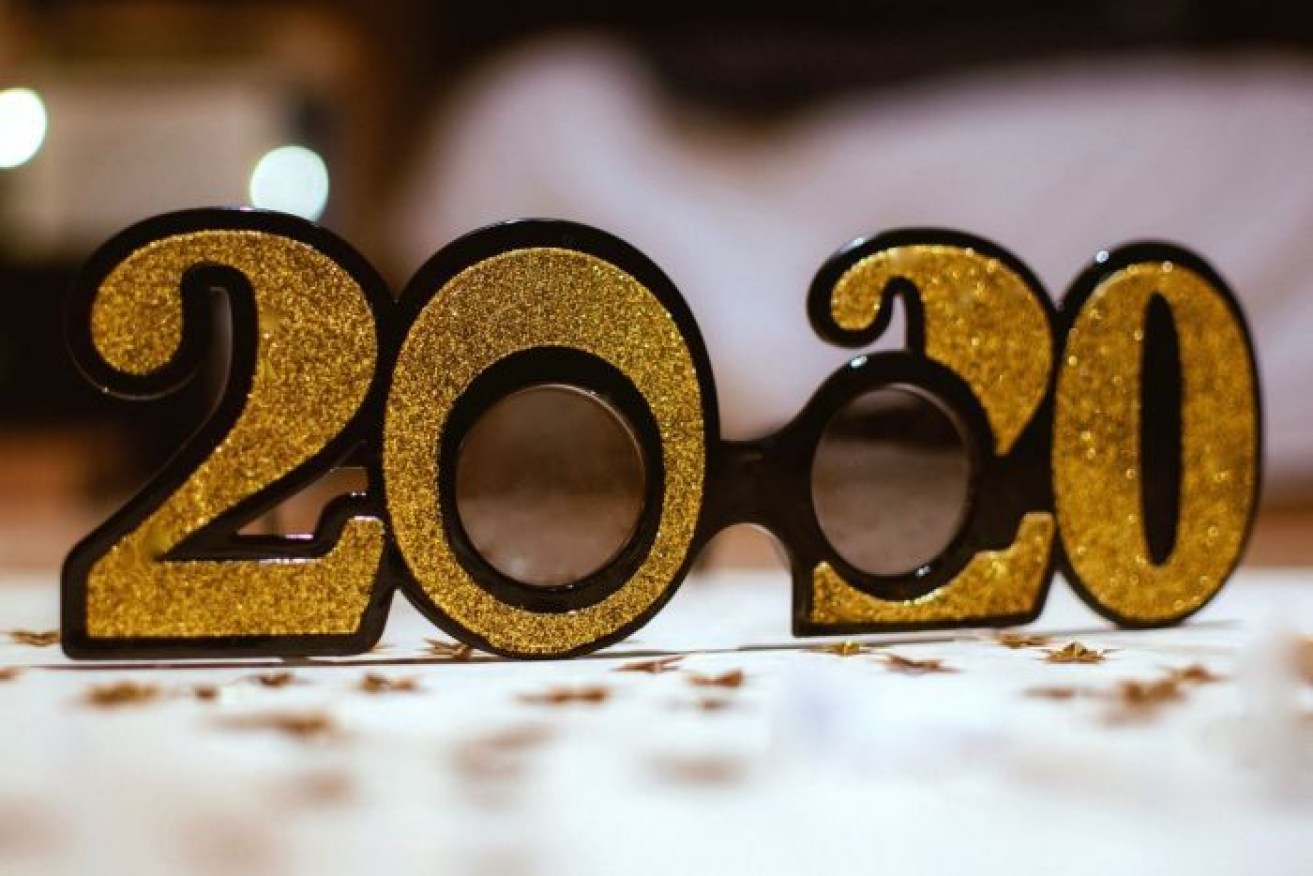Does 2020 mark the beginning of a new decade or do we have to wait until 2021?

If you're viewing 2020 as the beginning of a new decade, you may have to overlook one fact. Photo: Unsplash (Andrea Davis)
Today is the first day of 2020.
But does that mean a new decade has dawned?
Well that depends on who you ask.
Debate of the decade
As the new year approached, debate on social media flared up about whether we need to wait until 2021 before we can officially welcome a new decade.
A study from US website YouGov polled more than 13,500 Americans about when the new decade starts. Of these Americans, 64 per cent said the decade started in 2020.
Seventeen per cent said it started in 2021. The remaining 19 per cent weren’t willing to commit to either year.
Why would it be 2021?
Pedants in the 2021 camp put forward a reasonable (and passionate) case.
Their argument is rooted in a fundamental fact: the Anno Domini system used to number years in the Gregorian calendar has no year zero.
This means the counting for years began at one.
About the decade drama
2010 – first year
2011 – second
2012 – third
2013 – fourth
2014 – fifth
2015 – sixth
2016 – seventh
2017 – eighth
2018 – ninth
2019 – tenth BOOM after 2019 the tenth year is over2020 – first
2021 – second
etc…Enjoy
— Resurrection (@Res3387) December 30, 2019
This means the first decade went from January 1, 1 to December 31, 10.
So, by that logic, the second decade kicked off on January 1, 11.
It’s for this reason people argue the current decade began on January 1, 2011 and will end on December 31, 2020.
The same school of thought saw people argue the third millennium officially began until 2001 and not 2000, when much of a globe celebrated the new era.
I’m gonna be the nerd that ruins the “sparkle of the new decade” here and say the decade starts at 2021 not 2020
So next year is the last year of the decade 🤓🤓🤓
Because you start counting from one not zero
#2019 #2020Spoilers pic.twitter.com/fPTGOZ3Wq6— Waseem (@waseem850) December 30, 2019
Why would it be 2020?
When we refer to decades, we say the 1970s, ’80s and ’90s.
And when we talk about the nostalgia of the ’90s, we’re referring to the years 1990 until 1999. So as a cultural collective, we count decades from zero to nine.
Andrew Novick, a scientist who works for the US National Institute of Standards and Technology, put it succinctly when unpacking the debate in a series of tweets.
“You wouldn’t say that someone born in 1970 was from the sixties, would you?” he said.
The 80s were a decade. The 90s were a decade. We’re about to end the 2010s and start the 20s decade.
— Marques Brownlee (@MKBHD) December 30, 2019
People are simply saying we’re going from the 2010s, to the 2020s
Yes, technically the new decade doesn’t start until 2021
But literally nobody is counting 2020 as a part of the 2010s
What a weird hill to die on
Let people be 💀— Dom2K🎄 (@Dom_2k) December 30, 2019
But what’s the answer?
It’s really up to you, but ABC Language researcher Tiger Webb says convention leans towards tomorrow being the time to use that NewDecadeNewMe hashtag.
“The first ‘decade’ really ran from 1 January 1 to 31 December 10 — this is a fair enough way to look at things, if you are a spreadsheet,” he said.
“Most people aren’t, though, and the overwhelming convention at present is to discuss decades as discrete spans of 10 years beginning, for example, January 1, 1990 and ending December 31, 1999.
It’s all depressingly normative.
“Government agencies and weather satellites may well record the current decade as ending 31 December 2020, and rats off to them.
“People, in the aggregate, are not incorrect to mark that span slightly differently.”
Knowledge is knowing that there was no year 0, so technically, the new decade begins Jan. 1, 2021, not 2020.
Wisdom is knowing that we started this system in the middle, it’s socially constructed anyway, and it feels right to treat “1 to 10” as a decade, so that’s what we do.
— Hans Noel (@ProfHansNoel) December 28, 2019
So if you want to kick off the new year in a new decade, go for it.
But if you want an extra year to check off you to-do list for the decade, take your time.
Time is a human concoction
“What’s often missing from this discussion is that all calendrical systems are abstractions of human arrogance in the face of an indifferent universe,” Mr Webb said.
To insist otherwise is time fascism.”
What’s with all the dramz about ‘another decade nearly at an end?’ We are heading into the ’20s again. The twenties! 👌🏻😝🍸🍾 pic.twitter.com/Z3Zrtk5nqp
— Hazel Gaynor 🍸 (@HazelGaynor) November 13, 2019
In the Gregorian calendar system, we measure years in terms of Earth’s orbit of the Sun.
One lap around that spherical mass of fire equals one year. Ten laps around the sun is called a decade.
But years and decades are just units of measurement humans concocted to make sense of our past, present and future.
We could measure years in completely different terms and, in fact, we used to.
Before the Gregorian calendar was introduced in 1852, the Julian calendar was used but, according to Time and Date.com, that system did not reflect the actual time it took to circle once around the Sun.
Before the Julian calendar came about in 45 BCE, the Roman calendar, which was based on the phases of the moon, was used to track the passing of time.
But no matter how a year was a defined, time continued to pass.
A decade by any other name?
It’s worth noting that “decade” didn’t always mean what it means to us today.
“Interestingly, the use of ‘decade’ to refer exclusively to a period of time is a relatively modern convention,” Mr Webb said.
“From Old English Dictionary citations, it seems that ‘decade of years’ was the more regular expression through to the 17th, 18th and 19th centuries.
“Prior to that, a “decade” could be a collection of any 10 things.
“A king could have a ‘decade of [i.e. 10] subjects’, or a country a ‘decade of [i.e. 10] kings’, and so on.”
So, by that logic, a collection of 10 years could start at any year that takes your fancy.
And whether you want to start your new collection of 10 years tomorrow or one year from now is entirely up to you.








